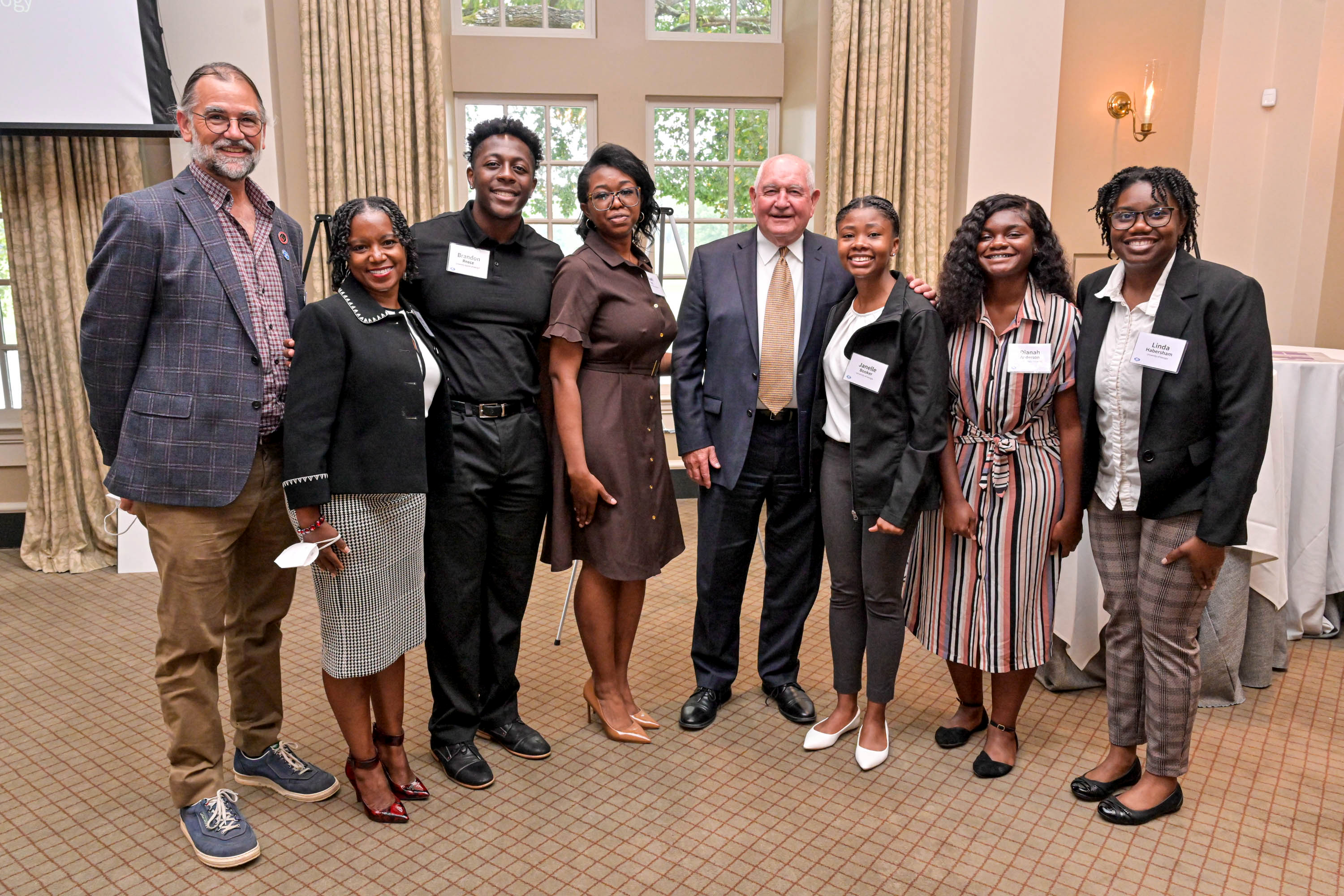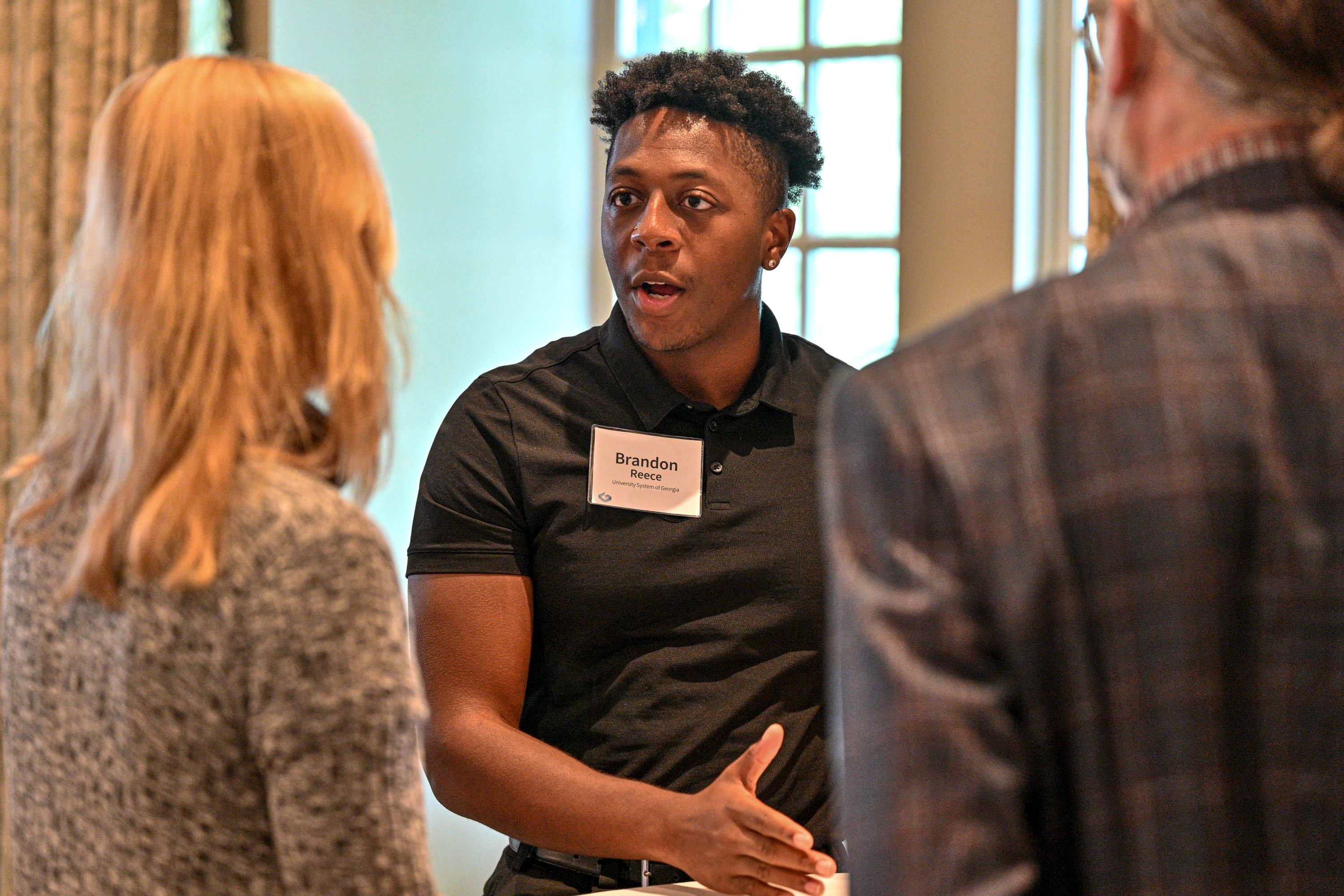Back to the Academy
GRA’s star university researchers reconvene their annual assembly
They work in a wide range of fields, and in elements ranging from antibodies to zettabytes. But members of GRA's Academy — Eminent Scholars, Distinguished Investigators and Senior Fellows — share a passion for scientific exploration and a genuine spirit of collegiality.
On August 10, the Academy met in Atlanta for an afternoon of information exchange and less formal conversation. It was their first in-person meeting since January 2020.
A few special guests attended as well. University System of Georgia Chancellor Sonny Perdue addressed the gathering, joined by his newly appointed Vice Chancellor for Acdemic Affairs, Ashwani Monga. And several members of the Class of 2022 GRA Student Scholars, who interned in labs over the summer, presented findings from their work.
Here we share a few notes, quotes, sights and scenes from the day.
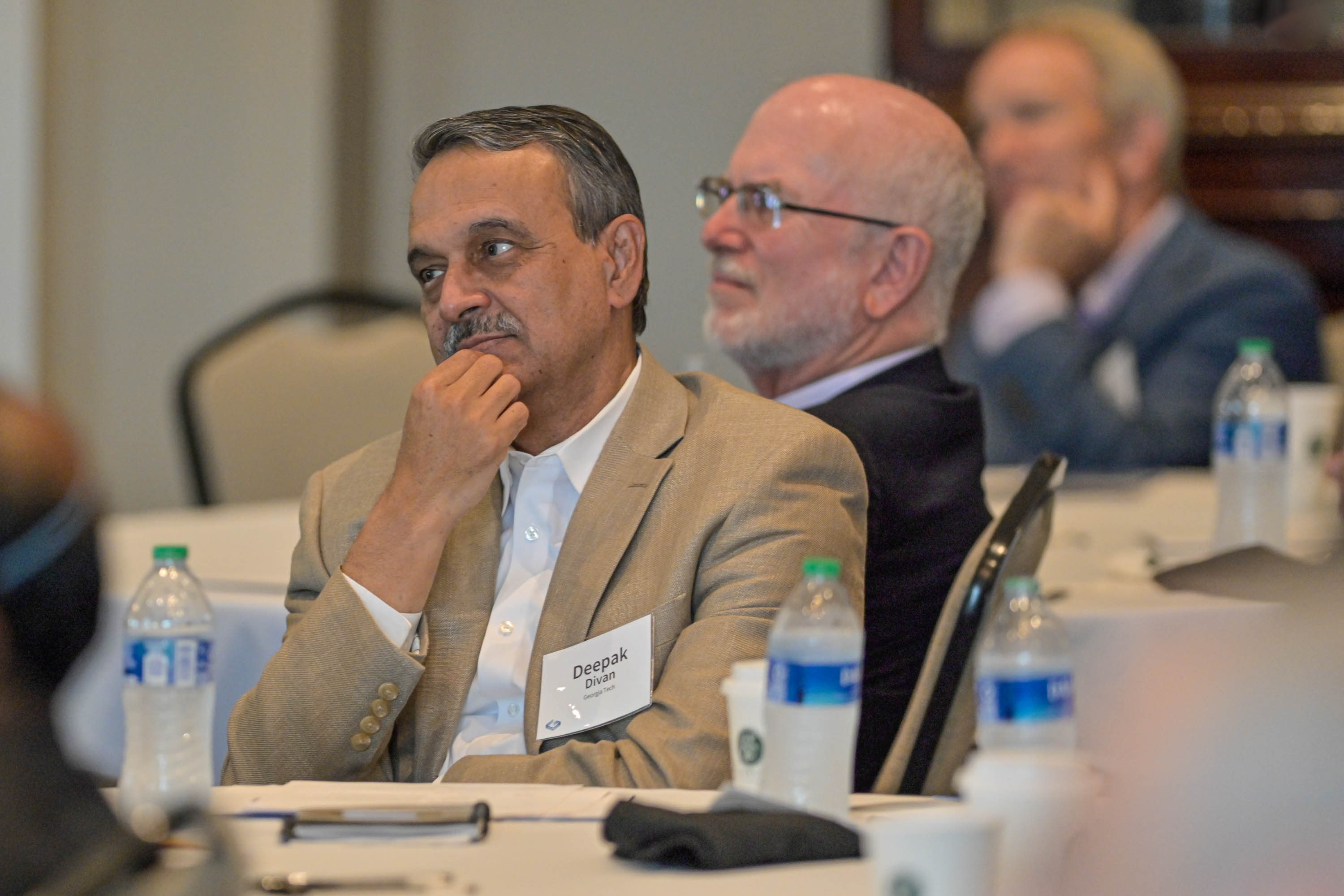
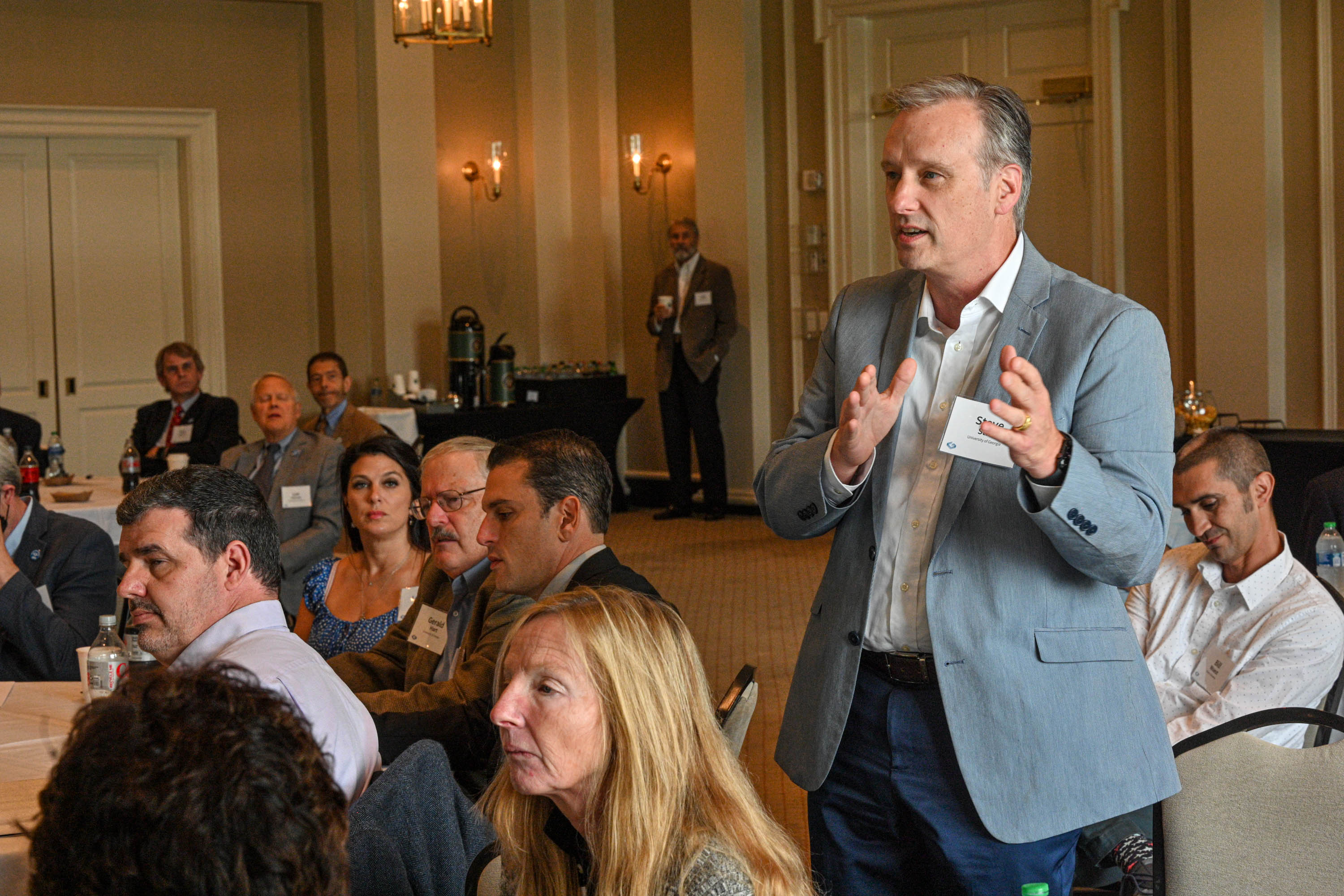
Above: GRA Eminent Scholar Deepak Divan of Georgia Tech and Eminent Scholar Steve Stice of UGA.
After officially kicking off the afternoon, GRA President Susan Shows introduced Board Chair David Ratcliffe, who extolled the impact the Academy has on Georgia. “Those of us on the GRA board are certainly proud of what you do, for the state, and for science and research,” he said.
Ratcliffe also shared the story of the event's setting, the East Lake Golf Club. Tom Cousins, a former GRA Trustee who was instrumental in helping to form the Alliance back in 1991, purchased the club in 1993 and restored it. Two years later, he and his wife, Ann, formed the East Lake Community Foundation, which worked to “transform the East Lake neighborhood and create new opportunities for the families who lived there.”
Cousins generously contributed to make it possible for the Academy to convene at the Club this year and in years past.
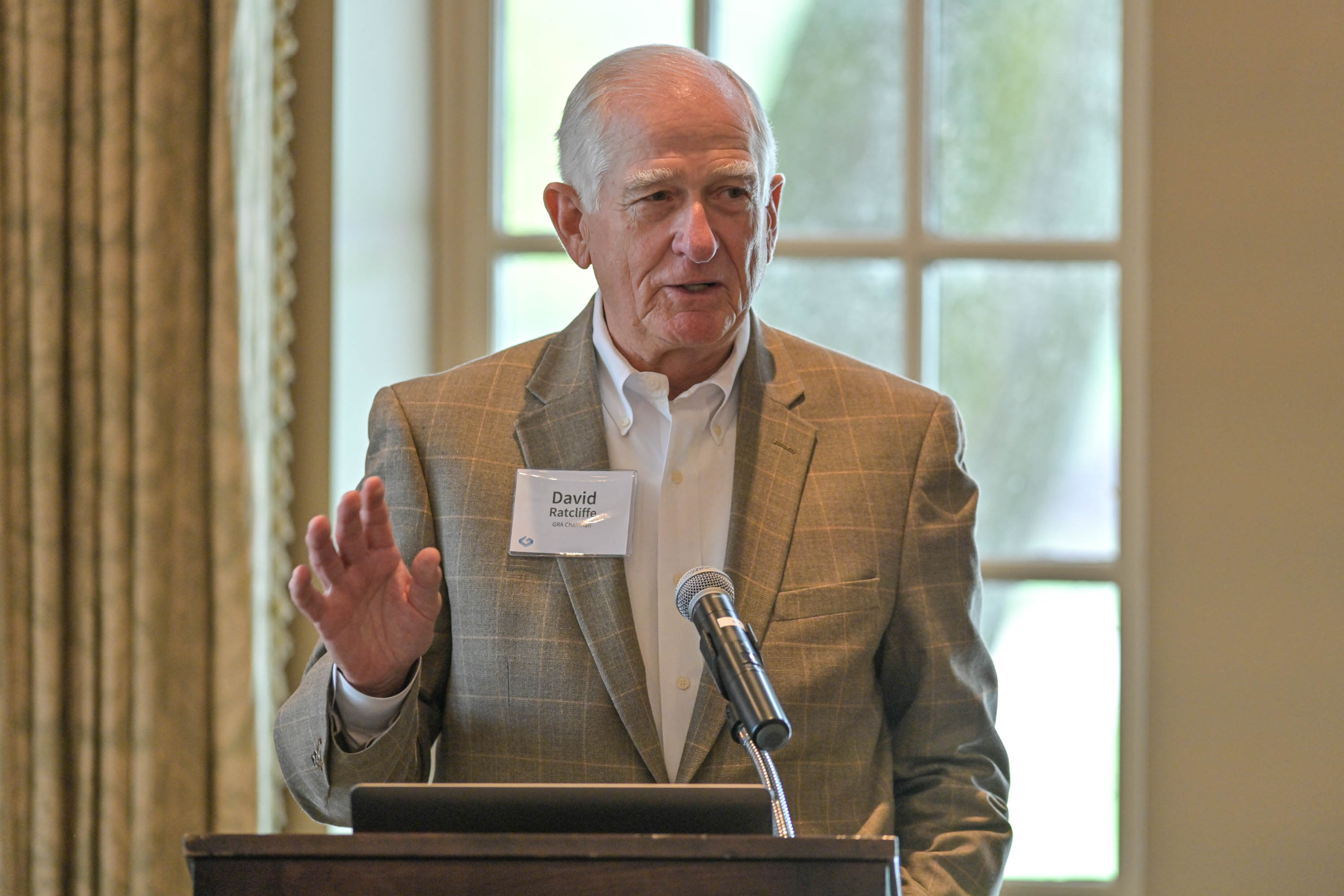
GRA Board Chair David Ratcliffe welcomes members of the Academy and guests
Four newly recruited members of the Academy then presented high-level views of their research:
- Newly arrived GRA Eminent Scholar Lynn Hedrick of Augusta University outlined some of her work in immunology research. While the body’s innate immune cells defend and prevent, she said, they can be tricked by heart disease, cancer and other diseases to behave badly. Her center aims to overcome some of these tricks.
- GRA Eminent Scholar Klaus Ley, recruited to Augusta University with wife Lynn Hedrick, shared three dimensions of his investigation of atherosclerosis, the hardening of arteries “that causes nearly all heart attacks.” Ley investigates the role that immune cells (macrophages) play in atherosclerosis and how to prevent or reverse an autoimmune reaction linked to the disease.
- Georgia Tech’s first GRA Distinguished Investigator, Jason Azoulay, described how his team is working to inform development of new classes of materials that are key to emerging technologies – and overcome existing technological barriers. Azoulay’s lab blends physics, engineering and materials science, specifically to come up with new processes, catalysts and other essentials to develop materials.
- Todd Golde, recruited as a GRA Eminent Scholar to Emory University, presented four themes of his exploration of Alzheimer's Disease. His research aims to develop "novel paradigms" that lead to new combinational therapies to treat the disease. "There is no magic bullet to Alzheimer's," he said, "but there can be magic cocktails." Golde emphasized how much he and his lab value collaborations with other scientists in Alzheimer's research.
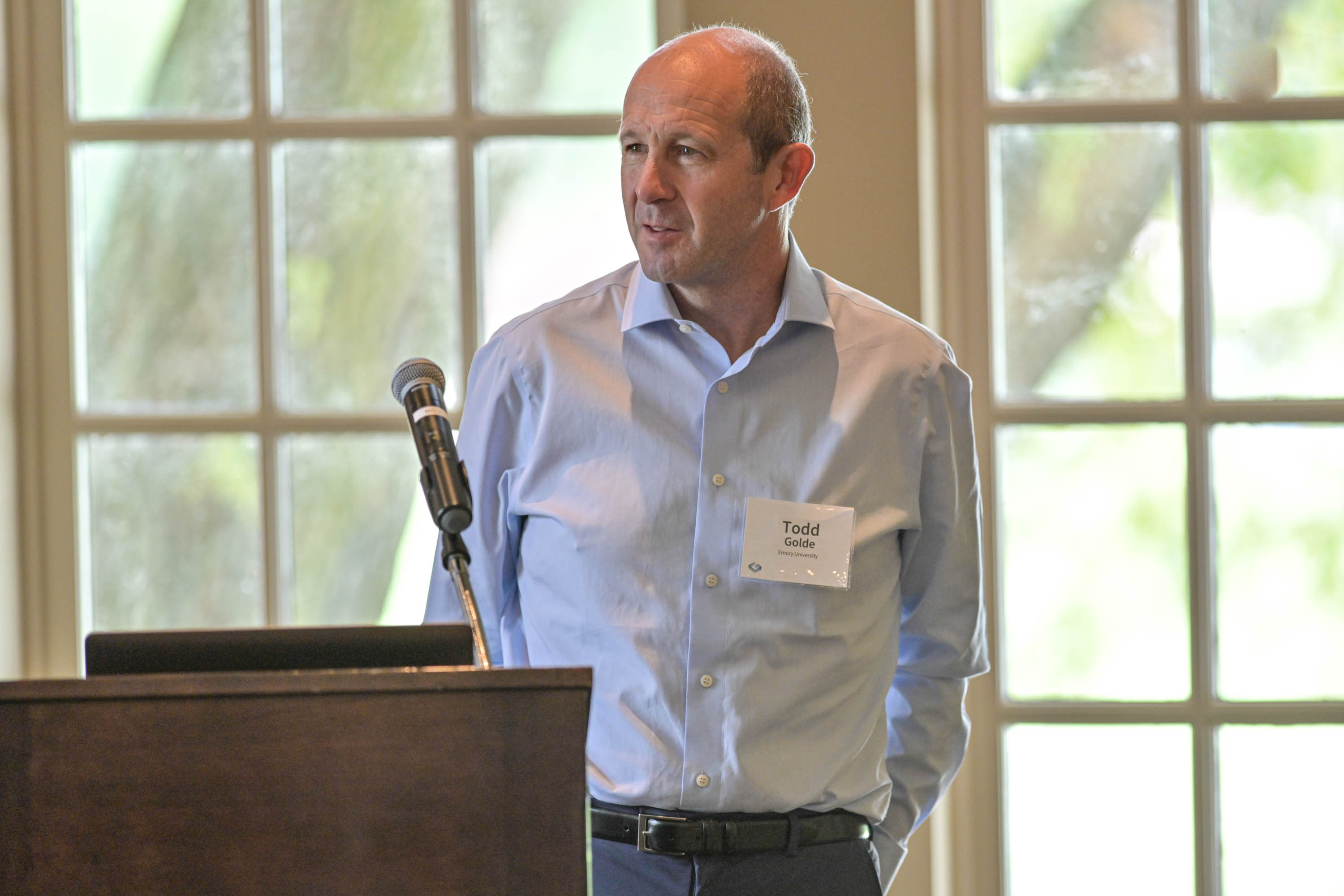
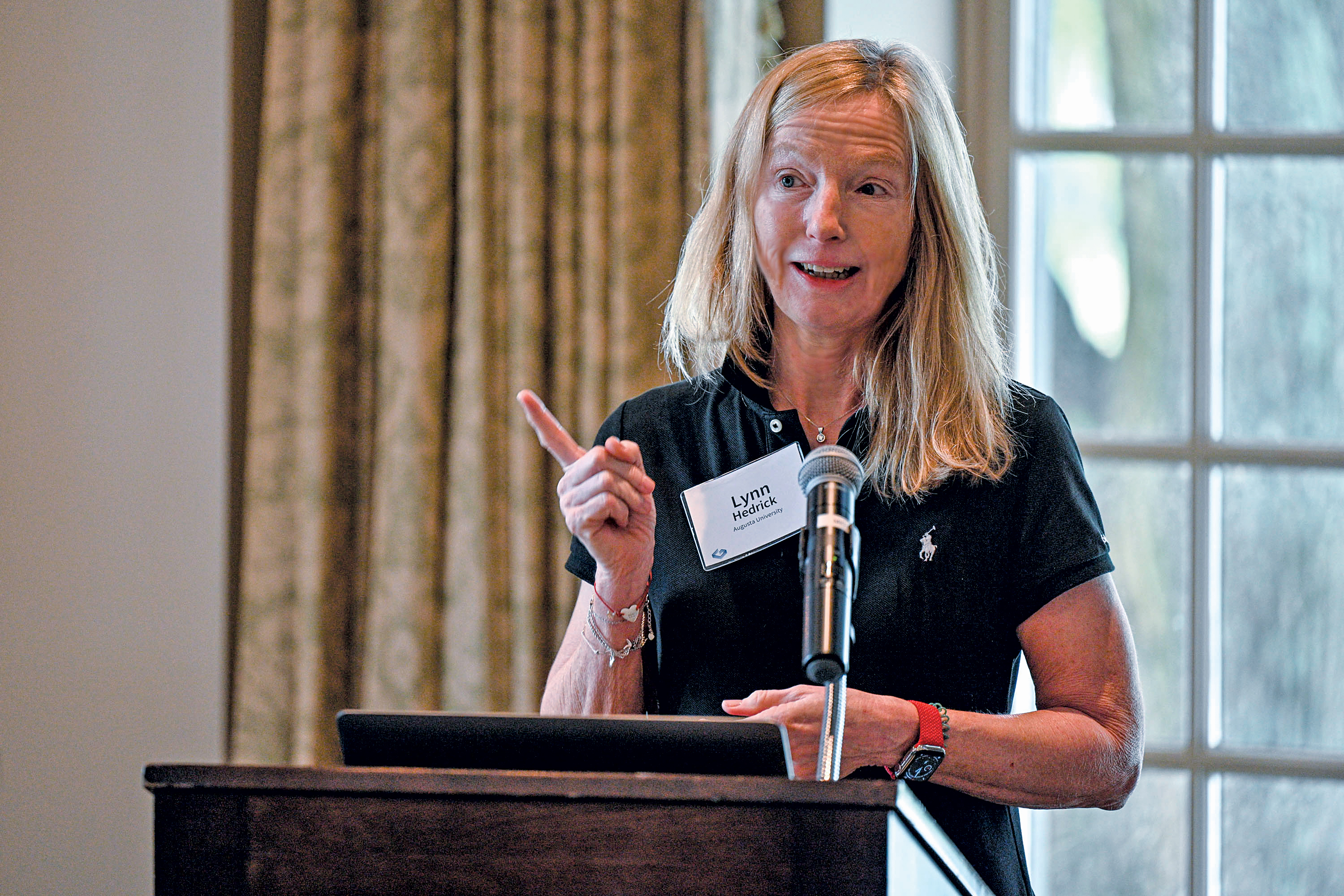
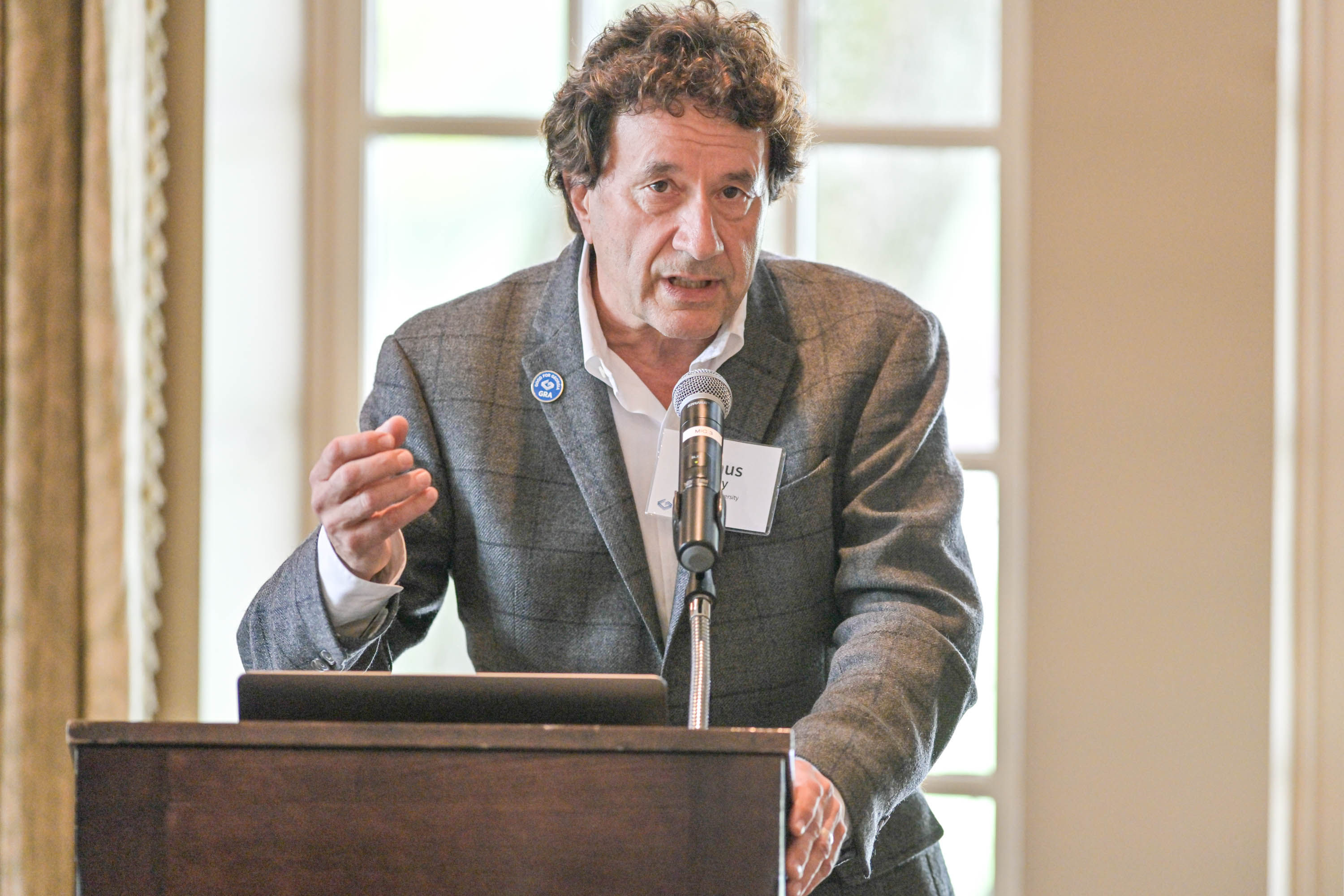
Newly arrived GRA Eminent Scholars Todd Golde (Emory), Lynn Hedrick and Klaus Ley (both of Augusta University) address the Academy.
Following the scientific presentations, Academy members heard from the entrepreneurial side of GRA, beginning with an overview of GRA's venture development program by Ashley Cornelison, the program’s operations director. She presented a snapshot of the portfolio as of August 2022:
- 226 active startup companies to date
- 1,710 professionals employed
- $2.1 billion in outside capital invested in the startups
One of those companies, EarliTecDX, offers technology that measures the visual attention of infants, thus opening the door to an earlier diagnosis of autism. The technology is an investigational diagnostic based on research conducted by GRA Eminent Scholar Ami Klin and colleague Warren Jones.
Klin took to the podium to provide an overview of EarliTecDX, which is planning a March 2023 public launch of its EarliPoint diagnostic. “We can significantly alter the outcomes of autism if we identify it earlier,” Klin said, noting that the current median age for diagnosis is between the ages of 4 and 6.
The EarliPoint test, Klin said, can be administered via a tablet device. “One day, a well-baby checkup at nine months will include this test,” he said.
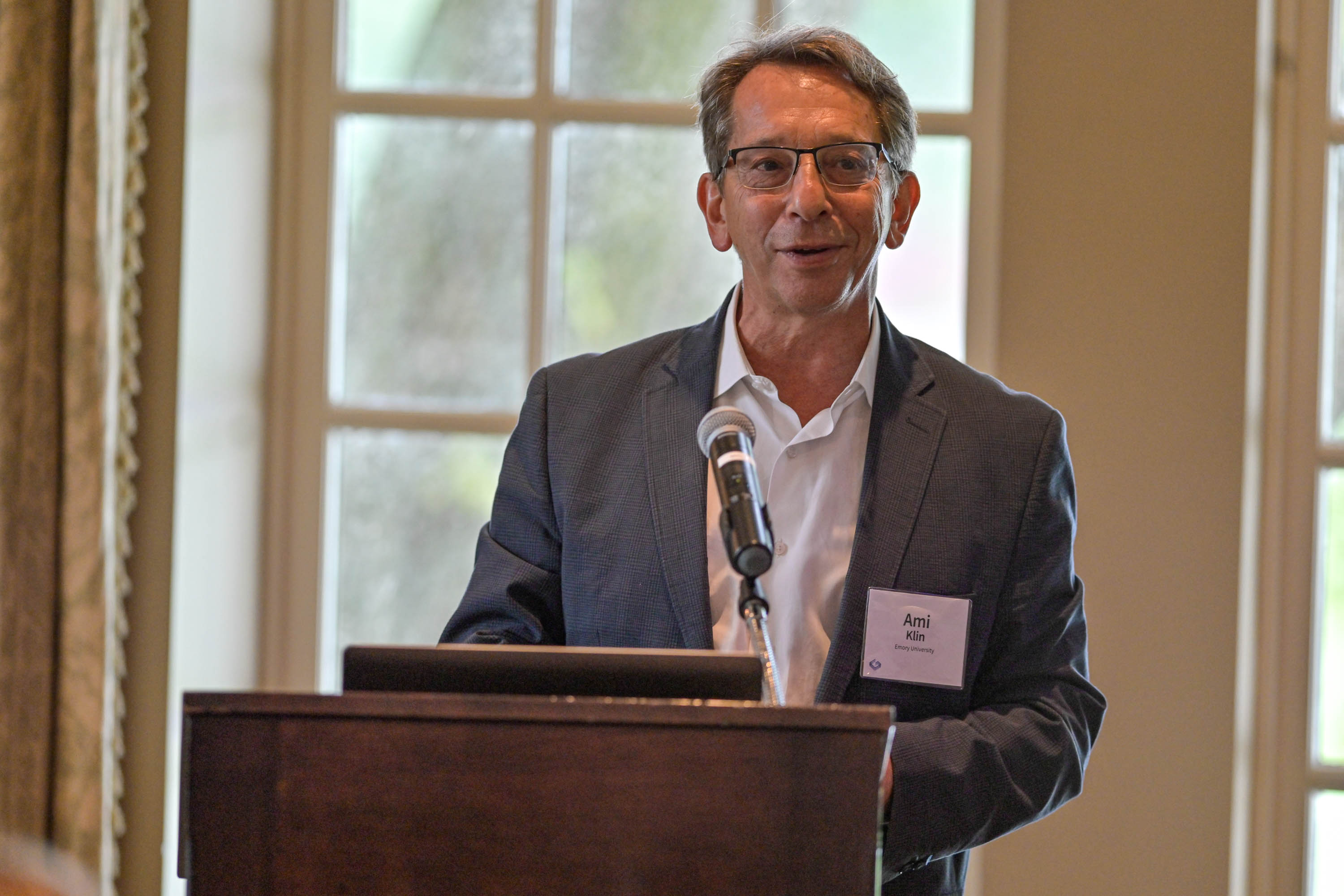
GRA Eminent Scholar Ami Klin shares news of the startup EarliTecDX, which offers technology to detect autism at a much earlier age.
Midway through the afternoon, the Academy heard from Sonny Perdue, Chancellor of the University System of Georgia and a GRA Trustee. Perdue praised the work of the Academy, not only in basic research but for “converting that knowledge into life-saving and life-giving solutions for humankind.”
The Chancellor talked about his long relationship with GRA, dating back to his time in the Georgia General Assembly and as a two-term governor of Georgia.
“You’ve been good for the Georgia economy, and I’m grateful for that,” he told the gathering. “I want to become a more fierce advocate for GRA for continuing or even increasing funding that will help us recruit more Eminent Scholars to Georgia.”
Chancellor Perdue noted that 25 percent of research funding attracted to Georgia’s universities is directed to GRA Academy members and their lab teams — which comprise just 5 percent of the state’s university research workforce. “That’s why you’re rock stars,” the Chancellor said.
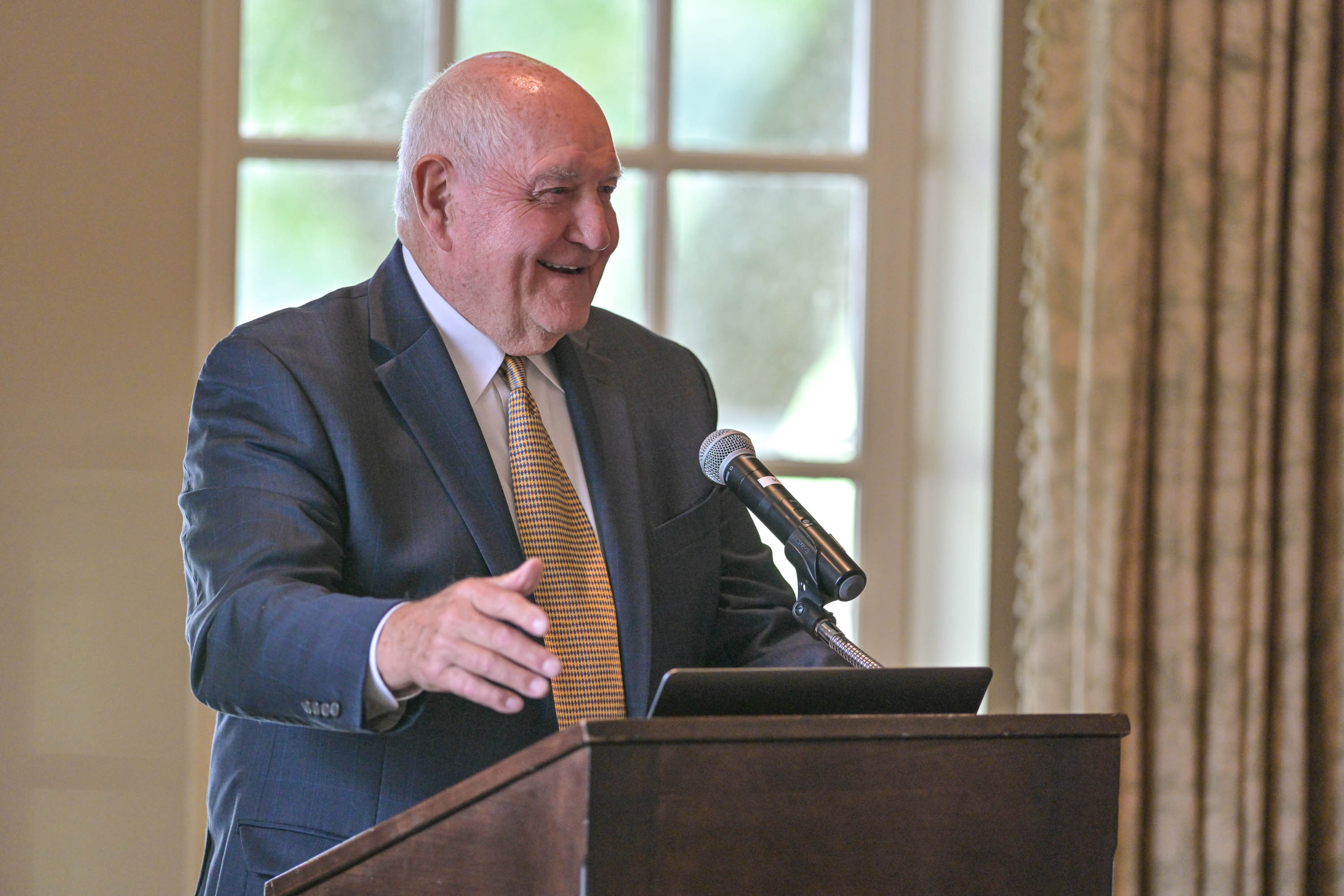
University System of Georgia Chancellor Sonny Perdue: “You are all changing lives for the better in so many ways.”
Seven GRA Student Scholars were also on hand at the Academy to present findings from their summer internships in university labs. Some talked through their posters, others spoke to PowerPoint slides, and the research experience they shared ranged from using hollow-fiber devices to filter gases to performing Western blots that help identify proteins.
Art Edison, a GRA Eminent Scholar at the University of Georgia, and Amanda Schroeder, GRA’s VP for marketing and community engagement, presented an overview of the Student Scholars program, which originated at the 2020 convocation of the Academy.
“We're fortunate that GRA championed this idea,” Edison said. “We have a lot of very talented undergraduate students here in Georgia, and this program not only gives them valuable experience but also helps to keep these talented students in our state.”
Joining them was Angela Birkes, who heads the Peach State Louis Stokes Alliance for Minority Participation (LSAMP), which helped GRA broaden its recruitment of students and provided valuable administrative support.
Throughout the afternoon, members of the Academy had several opportunities to talk informally with each other. The sight of renowned scientists working in different fields and at different universities sharing their work and experiences is something to behold: A reminder that Georgia has something truly unique among all other states.
